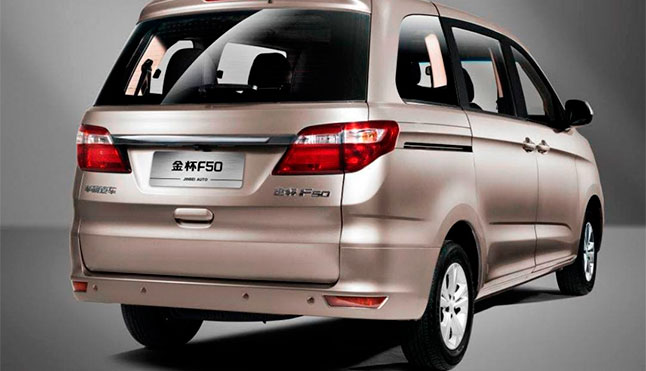
After years of strong sales growth and "cake for all", the Chinese market has to regulate itself, either with the invisible hand or with that of the politicians. In this process, manufacturers who, without the support of protectionism, are not competitive will disappear.
It's the economy, stupid. With that popular phrase dating from 1992, the future that holds for some Chinese car manufacturers that have benefited from 30 years of protectionist policies, but who in a competitive market do not have much future, can be summed up in one line.
The best example of this is Huachen Automotive Group Holdings Co. Ltd., parent company of Brilliance Auto Group, which in turn is a partner in two joint ventures, BMW Brilliance Automotive Ltd. and Renault Brilliance Jinbei Automotive Co., Ltd. Said parent is in a financial limit.
A month ago we told you that Huachen did not pay a bonus of 1 billion yuan and that he had 30 days to pay. This month the snowball has inflated to 6.5 billion yuan in debt obligations, involving the Shenyang Intermediate People's Court. It is already officially in a bankruptcy reorganization process, Xinhua reported.
The process was initiated by TF Securities, one of its creditors, who sued Huachen last August. Now the company has to restructure, so some chunks may be sold to get liquidity and pay off outstanding debts. At the moment, neither BMW nor Renault have been affected.
For 30 years, Chinese manufacturers have played to an advantage, the State protected them. To make cars in China, you had to forcibly partner with an existing car company (some state-owned, some private) and run a 50/50 joint venture. The alternative was to import with heavy tariffs and have inexpensive products.
In addition, foreign investors were obliged to share their technology and know-how with the Chinese, so they have had an accelerated learning of how to make American, European, South Korean and Japanese cars. There are manufacturers who have taken advantage of this better than others.
At the opposite extreme we have Geely, which is becoming an international manufacturer thanks to its smart purchasing policy and foundations: Volvo, Lotus, Proton, London Electric Vehicle Company (LEVC), Polestar, Lynk & CO, Terrafugia, Daimler AG (9.7%), soon smart (50%), etc.
China has already taken an important step to eliminate protectionism in its motor industry. Tesla settled in Shanghai without going through the annoying toll of sharing anything with any Chinese manufacturer. For its part, BMW is in the process of increasing its JV slice with Brilliance and making it "more yours" in 2022.
The Chinese market is saturated with hundreds of brands and products, so it is difficult for a bad product to compete. Brilliance itself has seen it in its meats, with sales plummeting since 2017 and in amounts that are certainly concerning. And it will not be the only one to fall.
Chinese manufacturers that want to survive cannot just live off the boob of the domestic market, they have to make the leap to other international markets. With their own brands they have it difficult, so you have to take out a checkbook to buy others, or turn nothing into something in the eyes of North Americans, Europeans or Japanese, those who buy the most cars.
Protectionism supposes a safety net, but when it is broken, because everything ends up being deregulated, those who are not prepared to survive crash. And in every crash there are people who lose money. It remains to be seen how Huachen / Brilliance comes out of this, because bankruptcy falls within the scope of the possible.
The way of doing things was already learned by the Japanese and South Koreans in their day: it is not enough to make good cars, but international markets create it for them. Huachen's potential bankruptcy may cause an investment stampede, as investors begin to see that state backing or ratings from rating agencies are not a totally reliable benchmark.
motor.es
